MEET OUR SHORTLISTED APPLICANTS
SHORTLISTED APPLICANTS for Category 1: Physical Activity and Mental Health
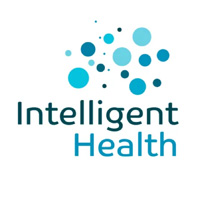
Intelligent Health
About the organization
Beat the Street is a community-wide intervention which aims to increase physical activity by using gamification to engage people and positively change behaviour. Since it was created, the programme has engaged 1.7 million participants and 5118 schools in 164 towns and cities. The Beat the Street programme has a significant positive impact on the mental wellbeing of communities. Published research shows that the initiative led to a significant increase in mental wellbeing, which was stronger for the least active individuals prior to the initiative. Since this publication, Intelligent Health has collaborated with academic partners to understand how the programme might lead to mental wellbeing benefits.

Luta pela Paz
About the organization
Luta pela Paz (LPP) uses sport as a tool to respond to the urgent need to improve access to mental health support for youth in the Maré favela in Rio. Youth from Maré face high levels of poverty, inequality and discrimination, and extremely high levels of armed violence: a 2021 study revealed 62% of Maré residents always or often feared being shot. Despite this, only 2% of national health budget is spent on mental health and youth from favelas are least likely to access what support exists. LPP uses boxing and martial arts to improve young people's mental well-being, and as an entry point to provide destigmatising workshops and tailored psychological support through Care Diaries, a methodology using a social-media inspired activity book to support youth to reduce symptoms of anxiety and depression.

Yoga and Sport with Refugees
About the organization
Yoga and Sport with Refugees (YSR) was born in late 2017 on the island of Lesvos, Greece, in direct response to the need for an inclusive and accessible environment for refugees to nurture their mental and physical health. In September 2020, we expanded the project to Athens. Through cooperation with Habibi Works and the KOIZ Centre for Postcolonial Studies, it started Habibi and Sport with Refugees in Ioannina in 2021 and launched our Paris project in June 2022. It now offers more than 20 different sports activities to approximately 400 beneficiaries each day. Through providing free sports activities led by refugees themselves, it facilitates opportunities that are traditionally absent for those in the asylum system.
SHORTLISTED APPLICANTS for Category 2: Physical Activity and Active Ageing

German Gymnastics Federation
About the organization
The German Gymnastics Federation’s ‘Active and fit living in the municipality for people over 60 years of age’ (Aktiv und Fit leben in der Kommune = AuF leben) initiative aims to encourage physical activity among elderly people and improve conditions for movement in the municipality. The sports clubs and community work together to initiate a network of supporters and develop an action plan for the activities.
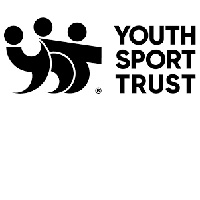
Youth Sport Trust
About the organization
Move and Groove is an innovative intergenerational project combining the worlds of music and sport to deliver health and wellbeing outcomes for young and older generations. Working with 10 UK schools and care homes, Youth Sport Trust and Intergenerational Music Making trained schoolteachers and care staff to lead intergenerational physical and music activities in care homes bringing joy to old and young alike. Using sports equipment, musical instruments and session delivery guides, Children from 4-16 years old joined in, encouraged and sometimes led weekly fun activities for their new older friends over 6-weeks. The impact on the older people (mean age, 83 years) was clear. Self-reported positive mood increased while negative mood, loneliness, depression, anxiety, and stress decreased.

Lunga Vita Attiva Aps
About the organization
LUNGA VITA ATTIVA APS (LVA) is a nonprofit association located in Trieste (Italy) with the objective of promoting healthy and active ageing through swimming. LVA’s target group is seniors over 60: it has 130 members and a community of 900 people. LVA has developed the Slow Swimming Format which includes a Swimming Course, attended regularly by 100 seniors over 60, a cycle of Healthy Ageing Seminars, a Social Program for members and their families and an annual Slow Swimming Final Event featuring the 360 relays with teams formed by 3 men and 3 women, the total age of which must exceed 360 years of age. The new web app "1000 Strokes Challenge" for healthy ageing invites participants to register the number of strokes and pool laps they do every day and the winner is awarded the Challenge Prize.
SHORTLISTED APPLICANTS for Category 3: Health-promoting schools
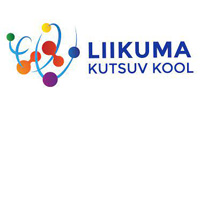
University of Tartu’s Move Lab
About the organization
Schools in Motion (SIM) is a programme that supports schools in integrating physical activities into every school day, including active travel to and from school, as well as movement during and in between lessons, both in and outdoors. It helps movement gain a greater foothold in school culture. Already 203 schools in Estonia have joined to SIM (35% of general schools), varied in location and size (from 17 to 1600 pupils, in the countryside, small and large towns), including schools for children with different native language and with special education needs.

University of Bradford
About the organization
Creating Active Schools (CAS) improves children's lives by creating cultural change for physical activity in schools. The programme is based on the original whole-school framework co-developed by 50 stakeholders in 2019. Within four years, the programme has scaled to being used by 200+ schools within 18+ localities across England. Using an online tool, schools are supported on their improvement journey by CAS champions who assist with profiling, action planning, training and evaluation. Unique to CAS is the place-based approach that supports schools to build on their current assets and develop their own sustainable physical activity journey. At the locality and national level, schools and CAS Champions are supported through communities of practice and peer-to-peer learning.
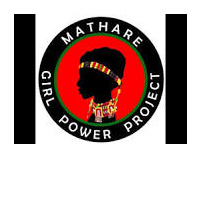
Mathare Girl Power Project
About the organization
The Mathare Girl Power Project collaborates with schools in Nairobi's urban slums and rural areas, addressing period poverty, implementing school feeding programmes, conducting outreach initiatives, and providing mentorship. Their goals include providing access to education, improving learning outcomes, establishing collaborative relationships, developing key talent, and building confidence. They aim to create lasting positive change in the lives of girls and their communities, recognising the crucial role health plays in their development and success.
SHORTLISTED APPLICANTS for Category 4: Role model in health for socially disadvantaged groups (citizens' choice)
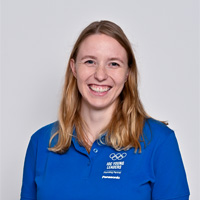
Aneta Grabmüller Soldati
Naplno
About
Aneta Grabmüller Soldati is an exemplary role model for health in sports society due to her tireless efforts in sharing information about health in sports. As an IOC Young Leader, she has demonstrated a strong commitment to promoting a safe and inclusive environment for athletes. By establishing her project, Aneta has highlighted the urgency of addressing the pervasive issue of harassment, ensuring the physical and mental wellbeing of athletes are prioritised. Her dedication and advocacy inspire positive change, encouraging sports organisations to implement stringent policies that protect athletes and foster a culture of respect. Through her leadership, Aneta serves as a beacon of hope, fostering a healthier sports society that thrives on fairness, integrity, and solidarity.

Layana Souza
Changing the Score (Mudando o Placar)
About
Layana Souza was born and raised in Rocinha, one of the largest favelas (slums) in Rio de Janeiro, Brazil. Through basketball, she found opportunities to change the course of her life. Layana's first international trip was to the United States as an 18-year-old with limited English skills, to live, study and play basketball abroad. As a student-athlete, she became the first person in her family to attend college. However, what makes her exceptional is that Layana not only improved her overall quality of life through sports but now seeks to inspire others with similar backgrounds to do the same. Souza overcame the financial barrier to found a basketball project in Rocinha that offers free lessons to boys and girls from 6 to 17 years old.

Marina Draskovic
Judo club for people with disabilities FUJI
About
As former professional judoka and longtime member of the Croatian Judo National Team Marina Drašković is breaking down participation barriers in judo and is creating new standards of sports inclusion not just in Croatia, but across the whole of Europe. In 2012 she founded the Judo Club for People with Disabilities Fuji, bringing together children and young people with cerebral palsy, Down syndrome, intellectual disabilities, motor difficulties, autism spectrum disorders and others. Youth with disabilities are among the most vulnerable groups in society. By becoming head of the Adapted Judo programme within the European Judo Union (EJU), Marina is climbing new heights and laying the foundation for the development of adaptive Judo all over Europe.


#MOVINGPEOPLE

"Funded by the European Union. Views and opinions expressed are however those of the author(s) only
and do not necessarily reflect those of the European Union or [name of granting authority]. Neither
the European Union not the granting authority can be held responsible for them"